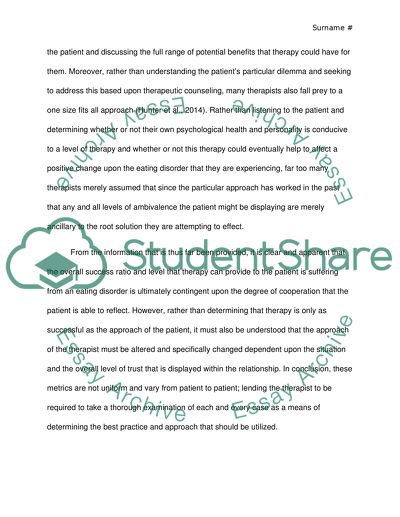Discuss the notion of ambivalence in working with people with eating Essay. Retrieved from https://studentshare.org/psychology/1637776-discuss-the-notion-of-ambivalence-in-working-with-people-with-eating-disorders
Discuss the Notion of Ambivalence in Working With People With Eating Essay. https://studentshare.org/psychology/1637776-discuss-the-notion-of-ambivalence-in-working-with-people-with-eating-disorders.


